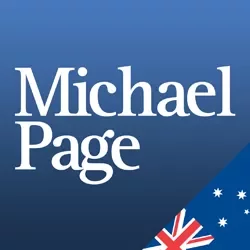How to leverage the borders reopening to attract top talent



On 21 February 2022, Australia reopened its borders to all fully vaccinated visa holders – signalling an influx of skilled labour from overseas and a major shift to the hiring landscape.
Since the government commenced Australia’s staged international border reopening in November the country has seen almost 580,000 arrivals, with migration expected to return to pre-pandemic levels this year.
As Australian expats return home and overseas workers seek opportunities on our local shores, showcasing your organisational brand and employee value proposition will be crucial to attracting the best talent.
Below, we explore how to target and ultimately leverage proven and high-potential talent from the returnee and skilled migrant pool in 2022.
Closed international borders in response to the pandemic have brought about a major skills shortage affecting many industries.
According to a 2022 study by RMIT Online and Deloitte Access Economics, the fall in skilled immigration since the start of the pandemic saw 380,000 fewer people enter the workforce at a cost of $32 billion to the Australian economy. Over half of employers surveyed (58%) for the study said they found it challenging to attract new staff, citing border closures as a key barrier to job hires.
Looking forward, however, government economists expect the border reopening to help alleviate labour shortages, particularly in industries such as food, hospitality and cleaning, where visa holders comprise more than 10% of the workforce.
The Treasury also predicts permanent migration will jump to 190,000 by next year and hit a net overseas migration target of 235,000 a year – indicating a new wave of talent seeking job opportunities across the country.
Amidst the upheaval brought about by the pandemic, candidates today are looking to join companies that have a purpose beyond the bottom line. Ensure your employer value proposition clearly articulates your organisation’s purpose, how this is fed through the employee experience and how employees will have the opportunity to contribute to it.
“Diversity is being invited to the party; inclusion is being asked to dance” – Verna Myers
The most forward-thinking and successful organisations today recognise it’s no longer enough to simply have diversity hiring metrics or an empty marketing spiel. To attract the best and brightest talent from around the globe, focus on building a truly inclusive culture that celebrates differences, accommodates people’s unique needs and facilitates connection. Showcase this culture throughout the hiring process to validate your organisation as an employer of choice.
RELATED: 8 steps to make your recruitment process more inclusive
A drawn-out interview process, lack of communication and failure to provide feedback will mean missing out on talent in a competitive labour market. Nearly half of today’s candidates are considering at least two job offers simultaneously, making it more important than ever to provide an efficient and positive experience throughout the hiring process. That’s where our specialists can help, reach out to Michael Page for advice on hiring.
Most organisations have adapted their work policies to accommodate a remote or hybrid workforce over the past two years. With flexible work options now expected as standard, ensure your work policies reflect this on the careers section of your website as well as in your job ads.
Lack of growth potential is cited as one of the biggest drivers behind the Great Resignation. Capitalise on the growing wave of employees leaving their jobs across the globe by highlighting opportunities for progression and development as a key component of your employer value proposition.
Finding and attracting skilled talent in a competitive jobs market is challenging. For support with your hiring goals in 2022, talk to a Michael Page recruitment consultant.
If you are an employer and would like to discuss your hiring needs, fill in the form below and we will call you back.
